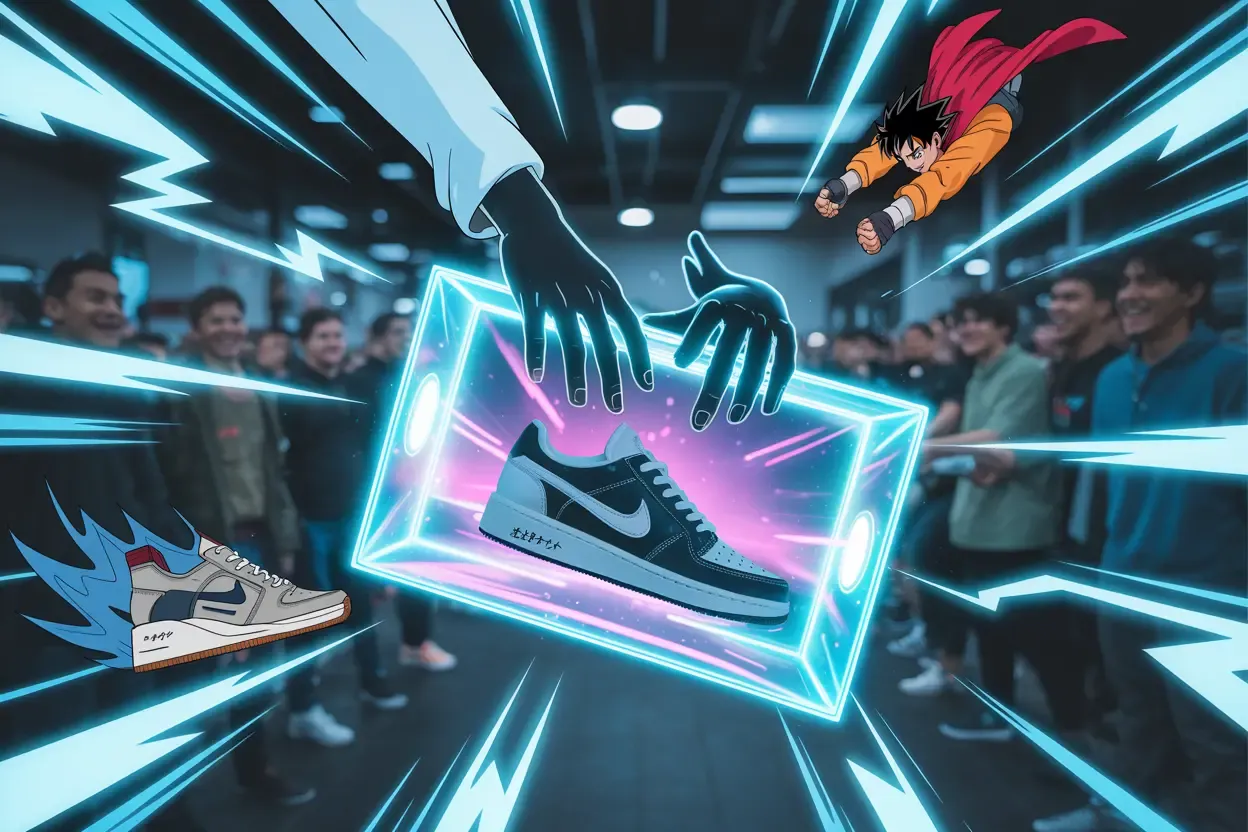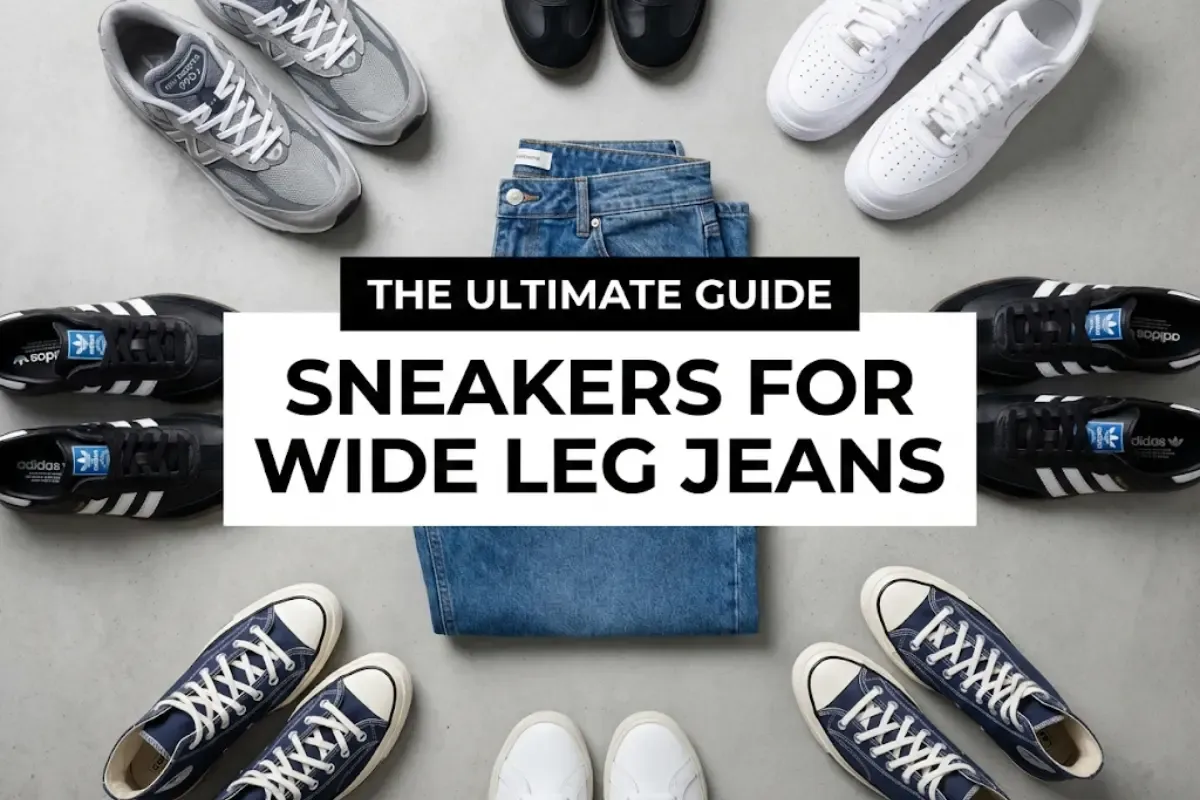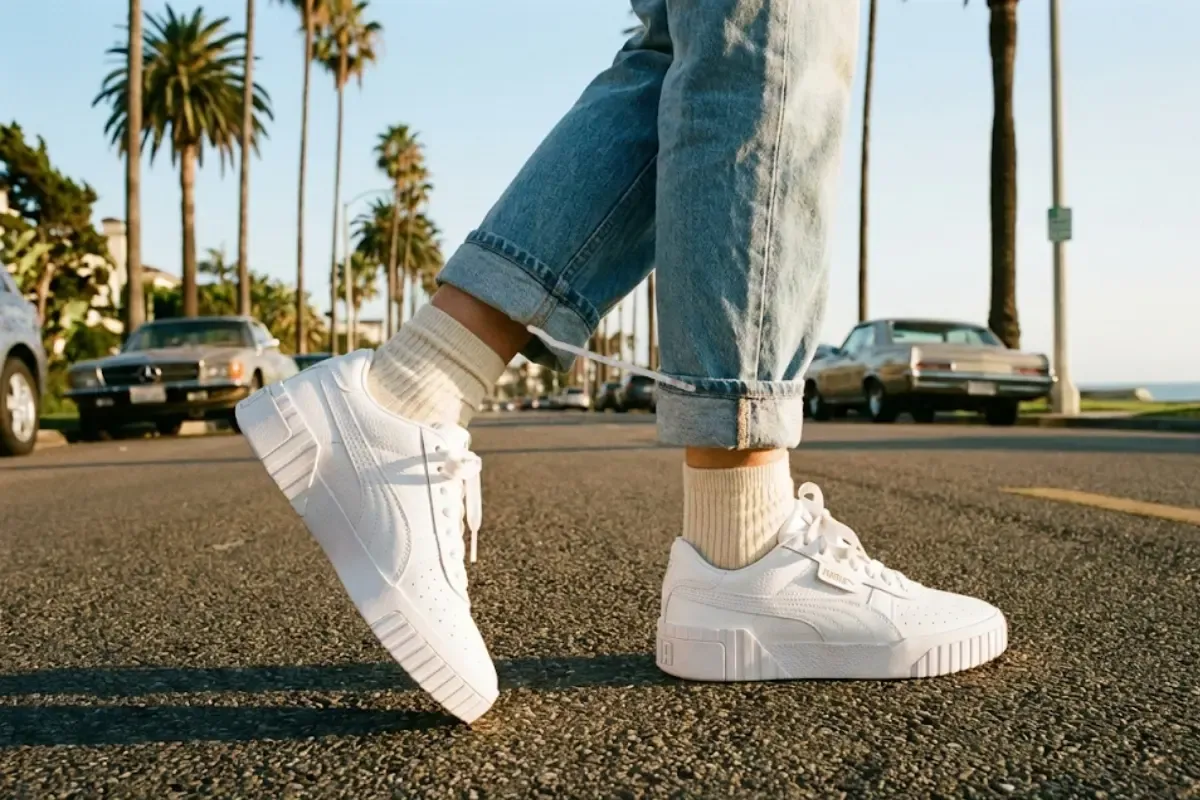
Table of Contents
You know, sometimes two worlds collide, and something truly special happens. Think peanut butter and jelly, or maybe... sneakers and anime? Yep, it sounds a bit wild at first glance, but honestly, the mashup of high-energy Japanese animation and iconic footwear has absolutely exploded into a massive, fascinating niche market. It's gone way beyond just a couple of themed shoes; we're talking about limited edition drops that cause pandemonium, fuel a huge resale scene, and spark some pretty passionate debates among fans.
Why all the fuss, you ask? Well, it turns out sneakers aren't just for athletes anymore, and anime is a global cultural powerhouse with millions of dedicated fans. When you combine that passion with the hype-driven world of limited-release footwear, you get a phenomenon that's equal parts exciting, baffling, and, let's be real, a little bit bonkers.
The Hype is Real: When Sneakers Meet Soul (and Shonen)
So, why are people losing their minds (and shelling out serious cash) for sneakers with anime characters plastered on them? It boils down to a few key things. For starters, these aren't just random designs; they're often collaborations with massive, beloved franchises like Dragon Ball Z, Naruto, Demon Slayer, and even the artistic giants at Studio Ghibli.

Think about it: for years, fans have connected with these stories and characters on a deep level. They've grown up watching Goku power up, rooting for Naruto on his journey, or getting lost in the magical worlds Miyazaki created. These characters feel like friends or inspirations. So, when a brand like Adidas or Nike takes that beloved world and puts it on a shoe – something you wear, something visible, something you can show off – it becomes more than just merchandise. It's a wearable piece of your identity, a way to carry a bit of that fictional world with you wherever you go. It's like wearing your heart on your feet, but, you know, way cooler.
And let's not forget the sneakerhead side of things. The culture thrives on exclusivity, rarity, and the thrill of the chase. Limited edition anime drops hit all those buttons. They're often produced in smaller quantities, announced with much fanfare, and sell out in seconds online. That scarcity automatically drives up demand and, consequently, resale value. It's the classic supply-and-demand dance, set to an anime opening theme.
We've seen some big players jump into this arena. Adidas and their Dragon Ball Z collection from a few years back is a prime example. They released a series of shoes, each representing a different character, with special packaging that formed a larger image when collected. Nike, through its main brand and Converse, has also tapped into the Naruto universe, even linking up with NBA star Zion Williamson, a known Naruto fan, for a collaboration. When a brand aligns with someone who genuinely loves the series, it adds a layer of credibility that fans totally pick up on. It feels less like a faceless corporation just trying to make a buck and more like a fellow fan sharing their passion.
But as with any hyped limited release, getting your hands on these can be tough. That's where the resale market comes in, and boy, is it a beast.
The Authenticity Tightrope: Walking the Line in the Resale Wild West

Okay, so you missed the drop. Happens to the best of us. Your next stop is likely a resale platform. This market is huge, with platforms like StockX, GOAT, and SNKRDUNK handling massive volumes of transactions globally. These sites are essentially digital marketplaces where people buy and sell sneakers that have already been released.
The biggest hurdle in this space, especially when you're dealing with high-demand, limited items? Counterfeits. The fake sneaker game is incredibly sophisticated these days, and anime collabs are a prime target. Getting stuck with a well-made fake is a real worry for buyers, and it can really undermine trust in the market.
Platforms like StockX and GOAT try to combat this with rigorous authentication processes. They have teams of experts, sometimes using machine learning, to verify if a shoe is the real deal before it gets shipped to the buyer. StockX, for instance, has rejected over a million items worth hundreds of millions of dollars due to authenticity concerns. That level of scrutiny costs money, sure, but it also builds trust, and frankly, buyers are often willing to pay a premium for that peace of mind. It's like an insurance policy against getting ripped off.
Then there are platforms like Mercari, particularly in Japan, where users have reported a significant number of fakes. While it might seem like a good place to find a deal, the risk of getting a counterfeit is much higher because there isn't the same level of platform-enforced authentication before the sale.
But here's a twist: "authenticity" in the anime sneaker world isn't just about whether the shoe is physically real. For fans, it's also about whether the collaboration itself feels authentic. Does it truly capture the spirit of the anime? Does it show a genuine understanding of the characters and story? Or does it feel like a lazy cash grab, just slapping a logo on a generic shoe?
Take the Adidas x Dragon Ball Z collection again. While some fans loved the concept and collected the whole set, others were pretty critical, feeling the designs were a bit phoned-in and didn't really reflect the characters properly. They wanted designs that felt like they were from the Dragon Ball universe, not just inspired by it. This kind of feedback shows that fans are discerning; they can tell the difference between a thoughtful tribute and something that just feels like commercial exploitation.
And this scrutiny gets even more intense when the anime is deeply rooted in Japanese culture or history, like Demon Slayer, which draws heavily on Japanese folklore and the Taishō period. Or think about Studio Ghibli, known for its incredible artistic integrity. Collaborations here, like the ones Loewe has done, are often judged on how well they respect and translate that artistic vision. It's a delicate balance – paying homage without feeling like you're appropriating or cheapening something deeply loved.
Fan Voices: More Than Just Collectors, They're Critics
The fans aren't just buying these shoes; they're talking about them, dissecting them, and sometimes, debating them heatedly online. Forums on Reddit, MyAnimeList, and dedicated Discord servers are buzzing with opinions. These are spaces where fans voice their excitement, share their cops (that's sneaker-speak for successful purchases), and, yes, air their grievances.
There's a constant back-and-forth about that "cultural homage" versus "exploitation" idea. Is this collaboration a genuine celebration of the anime, or is a big Western brand just using a popular Japanese IP to make money? These debates can get pretty nuanced, especially when you consider the different perspectives between Western and Japanese fans. What might be seen as cultural appropriation in the West might not carry the same weight in Japan, where there's a different cultural context around adopting outside influences. It's a complex space, and brands really need to navigate it carefully.
You also see differences depending on how deep someone is into anime fandom. A "casual" fan might just like the way a shoe looks because it has a cool character on it. But a dedicated "otaku" (a term for someone with an intense, sometimes obsessive, interest in anime or manga) is going to be looking for those deep-cut references, the lore accuracy, and the overall quality that shows the brand gets it. These are the fans who drive a lot of the critical discussion and really hold brands accountable.
The Resale Landscape: Navigating the Global Marketplace
So, where exactly are these anime kicks changing hands after the initial drop? It's a global network, but there are distinct hubs. Japan, being the birthplace of anime, has its own ecosystem. Platforms like Mandarake, a long-standing retailer of anime collectibles, and SNKRDUNK, a dedicated Japanese sneaker resale platform, are key players there. Then you have huge C2C (consumer-to-consumer) platforms like Mercari Japan.
Meanwhile, in the West, StockX and GOAT tend to dominate the broader sneaker resale market, including anime collabs. North America actually accounts for the largest chunk of the global sneaker resale market.
Interestingly, while Japanese fans might be less likely on average to buy general anime merchandise compared to fans in the U.S. or Thailand, Japan is often where exclusive or early releases happen. This can create a kind of "collector's arbitrage," where items are bought locally in Japan and then resold for a higher price in the West, where demand is often sky-high. Proxy buying services help bridge this gap, letting international fans access Japanese markets, but they add cost and complexity.
The issue of fakes on some Japanese C2C platforms like Mercari Japan also means that buyers looking for genuine articles might actually prefer paying a bit more on a platform like SNKRDUNK or even using a proxy for a trusted retailer like Mandarake, simply for the assurance of authenticity.
Limited-edition drops are inherently volatile. We saw this with the Adidas x Dragon Ball Z collection; shoes that retailed for around $130-$150 quickly resold for $500 or more for popular models. The Naruto Converse drop was also expected to sell out fast due to its limited nature. The combination of sneaker hype and dedicated anime fandom creates intense demand, pushing resale prices well above retail.
Beyond the Drop: Fans Taking Control
Fans aren't just passive participants in this market. They're actively shaping it, sometimes by taking matters into their own hands. One powerful way they do this is through creating their own custom anime sneakers. Walk around online marketplaces like Etsy or check out social media, and you'll find incredibly talented artists hand-painting popular sneaker models with intricate designs from all sorts of anime.
These fan-made customs aren't just cool art; they're a form of expression and even a subtle critique. They show what fans really want to see, often filling the gaps left by official collaborations that might feel too generic or not detailed enough. When a fan creates a meticulously painted shoe featuring a niche character or a specific scene, it sets a high bar and. It's a way for fans to reclaim some creative control and show brands what true dedication looks like.
While we haven't seen widespread, organized boycotts specifically of anime sneakers (yet!), the potential is there. We've seen fan activism work in other areas, like K-pop, where fans have successfully pressured companies through online campaigns and boycotts. If an anime sneaker collaboration is perceived as truly disrespectful, exploitative, or just plain bad, the interconnected nature of online fan communities means negative sentiment can spread rapidly and damage a brand's reputation within that fandom. Brands need to remember that alienating the core, passionate fans—the "otaku" who are often the most vocal and influential—can have long-term consequences.
Conclusion: Passion, Profit, and Finding the Authentic Kick
The world of anime-inspired sneakers is a wild, vibrant, and ever-changing space. It's a place where the intense passion of anime fans meets the hype-driven machinery of the sneaker resale market. We've seen incredible demand, fueled by limited drops and a deep desire for fans to connect with their favorite series in new, wearable ways.
But it's also a market with its challenges. The pervasive issue of counterfeit products casts a shadow, making trusted authentication processes absolutely vital. And then there's the ongoing conversation about authenticity – not just whether a shoe is real, but whether the collaboration itself feels genuine, respectful, and true to the anime it represents.
Ultimately, the success of future anime sneaker collaborations is going to hinge on finding that delicate balance between passion and profit. Brands need to do their homework, truly understand the anime and its cultural context, and strive for designs that feel like a genuine homage, not just a quick cash-in. Resale platforms need to keep investing in robust authentication to protect buyers. And fans, well, they'll keep doing what they do best: passionately celebrating the collaborations they love, sharply critiquing the ones that miss the mark, and maybe even creating their own incredible customs along the way. Because at the heart of it, it's all about celebrating stories and characters that mean the world to them – one step at a time.


